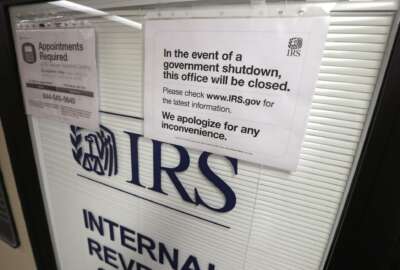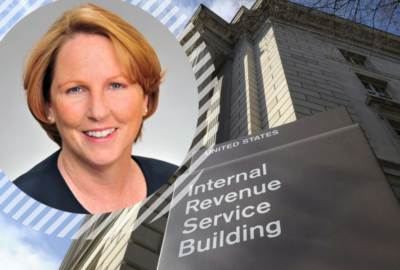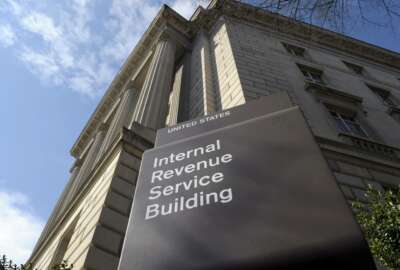

The IRS is recruiting outside tax experts to help the agency determine whether it should create a platform that would allow taxpayers to submit electronically filed...
The IRS is recruiting outside tax experts to help the agency determine whether it should create a platform that would allow taxpayers to submit electronically filed tax returns directly to the agency.
The IRS, in a statement Wednesday, said it selected the think tank New America and Ariel Jurow-Kleiman, an associate professor of law at Loyola Law School in Los Angeles, to serve on the task force that will examine the feasibility of the IRS creating a “direct e-file” system.
“As required by the Inflation Reduction Act (IRA), the IRS is working with independent third-party experts as it looks at the feasibility of an IRS-run ‘direct file’ tax return system,” the IRS said in its statement.
The Inflation Reduction Act, in addition to giving the IRS $80 billion to rebuild its workforce and modernize its legacy IT, also requires the agency to create a task force to explore the possibility of creating an e-file system.
The IRS said Jurow-Kleiman, a nationally recognized tax expert, will work with New America, a nonprofit organization with expertise in technological change, the tax code and taxpayer experience, to provide the independent third-party assessment on the feasibility of the direct e-file system.
The legislation gave the IRS $15 million to stand up the task force, as well as nine months to deliver a report to Congress on whether the direct e-file system would be cost-effective for the IRS to operate, and whether taxpayers would use the system, rather than rely on third-party tax preparers.
The IRS said Wednesday it’s on track to deliver its direct e-file report to Congress in May 2023.
The task force is meant to advise the IRS on standing up its own direct e-file tax return system and the “overall feasibility, approach, schedule, cost, organizational design and Internal Revenue Service capacity to deliver such a direct e-file tax return system.”
The IRS report, as specified in the law, should estimate the cost of the IRS to operate its own direct e-file system, as well as whether the service should offer different tiers of service, based on a taxpayer’s income and the complexity of their tax returns.
Congress is asking the IRS, in consultation with its task force, to estimate the costs to build and administer each release of the e-file service, “with a focus on multi-lingual and mobile-friendly features and safeguards for taxpayer data.”
Lawmakers are also asking for the IRS report to explore “taxpayer opinions, expectations, and level of trust, based on surveys, for such a free direct e-file system.”
The direct e-file program, if it comes into focus, would significantly expand what the IRS has been doing under its Free File program for more than 20 years.
The IRS under the Free File program has partnered with private companies to provide free electronic tax preparation and filing for taxpayers who have incomes below a certain threshold.
For the 2022 filing season, the IRS required Free File participants to offer free tax filing services to taxpayers with an adjusted gross income limit of $73,000 or lower.
The IRS launched the Free File program to encourage taxpayers to shift from filing on paper to filing electronically. About 70% of Americans are eligible to file electronically using the IRS’ Free File program.
A Government Accountability Office report from April 2022 found that only 4 million individuals, or about 4% of all eligible taxpayers, used the program to file their federal tax returns. About 44% of Free File users had an adjusted gross income of $17,000 or less.
GAO recommended the IRS develop additional options for taxpayers to file their tax returns for free.
The watchdog added that the IRS relied on the Free File program as the primary way for taxpayers to file for free online, even though companies have been leaving the program.
Two large companies, H&R Block and Intuit, the company behind TurboTax, left the Free File program in recent years, resulting in fewer taxpayers using the program. Under the terms of their agreement, individual companies can leave the Free File program at any time.
Meanwhile, another GAO report this week found a decade-long plan for the IRS to modernize a key component of its legacy IT is falling behind.
GAO found the IRS recently suspended two modernization initiatives essential to replace its 60-year-old Individual Master File (IMF), the IRS’s authoritative data source for every individual taxpayer.
IRS officials told GAO it suspended work on the projects to shift resources to higher priorities. The IRS said last year it hopes to replace the IMF by 2030, but GAO said that timeline is now less clear.
Copyright © 2025 Federal News Network. All rights reserved. This website is not intended for users located within the European Economic Area.
Jory Heckman is a reporter at Federal News Network covering U.S. Postal Service, IRS, big data and technology issues.
Follow @jheckmanWFED



